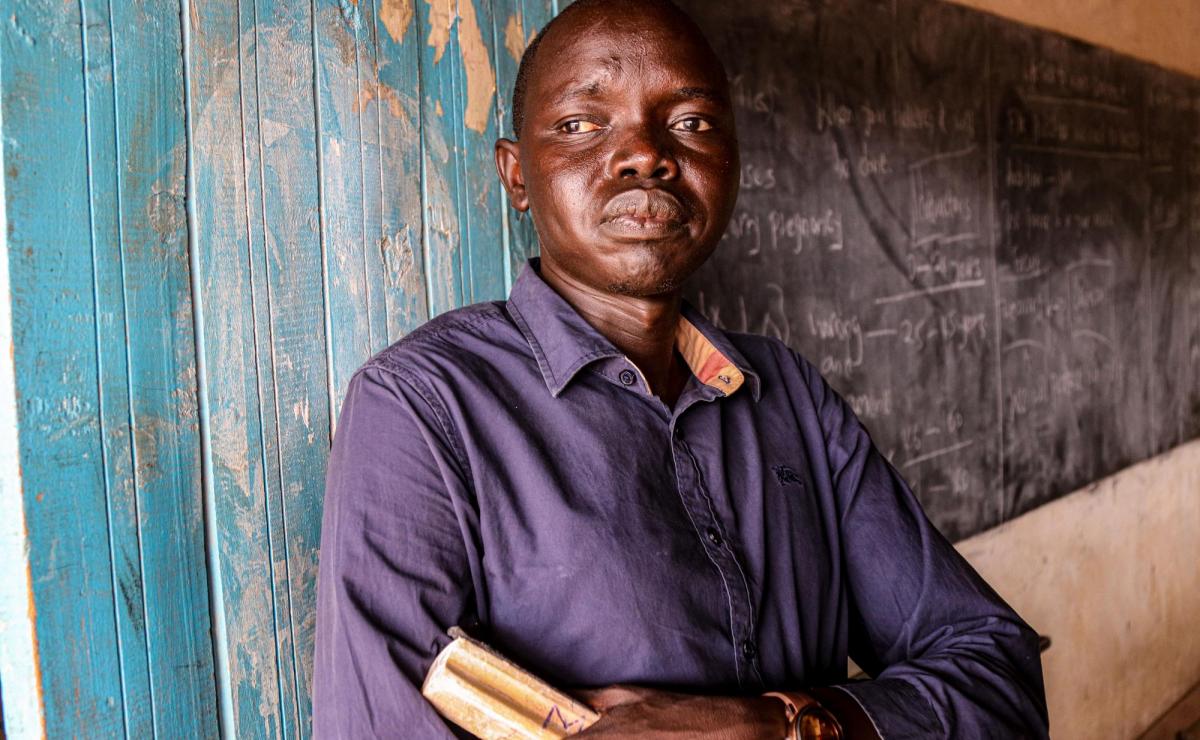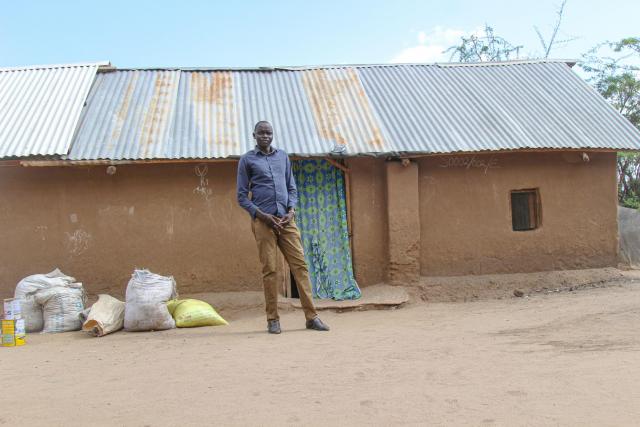Escape from a warzone

My name is Thon Mabior Jok. I was only 10 years old when I fled my country in 2002. Like many other children of my age then, I did not understand why people in my country South Sudan were fighting or why everybody was fleeing. All I wanted was to go and play in the field with other children. As I fled for safety, I was separated from my family and never saw them again. The boys that could not run would either be killed, badly injured or forcefully enlisted by the armed groups to become child soldiers.
Days after fleeing from our home, I found myself at what I later learnt was the Nadapal Transit Centre at the border between Kenya and South Sudan.
I was assessed and documented as an unaccompanied minor before being moved to Kakuma where I was soon put into a large foster family of 14 children. This made my life very difficult. We were struggling for everything because of scarcity of supply, limited food, limited space to sleep and sometimes even limited water to quench our thirst amid the soaring temperatures in Kakuma.
Being much older at the arrival, I was assessed and enrolled in grade 4 of primary school, skipping the first 3 grades. I worked hard and proceeded to sit the Kenya Certificate of Primary Education (KCPE) examinations in 2006. Opportunities for secondary education were and still remain limited in the camp but I scrambled for it and successfully completed my secondary education in the year 2010.
The Lutheran World Federation (LWF), the agency that implements primary education in refugee camps in Kenya on behalf of the United Nations High Commission for Refugees (UNHCR) then granted me an opportunity to work as an untrained refugee teacher immediately after my secondary education. But right now the unaccompanied boy that arrived in the camp barefooted is a proud holder of a Bachelor’s Degree in Social Work from a public in Kenya and is delighted to be working as a teacher at Bahr-el-Naam Girls’ Primary school here in Kakuma refugee camp.
Looking back to where it all started, I keep telling myself that I couldn’t have done it without the support I received from LWF and UNHCR. They not only gave me protection, food and a place to sleep but also dignity, hope and a means of livelihood.
“The system believed in me…”
LWF and UNHCR here in Kakuma believed in my potential and did all they could to nurture and prepare me for life ahead. They ensured that my childhood was almost like that of regular kids despite my unique vulnerability status. Today I am not just a refugee teacher but an accomplished, qualified social worker.
It is estimated that 2 million people died during the South Sudanese civil war and looking back I don’t regret the decision I made as a 10-year-old boy of following the unassured steps to a refugee camp in the company of strangers. I am so grateful for the people that gave me a hand and made me a better


